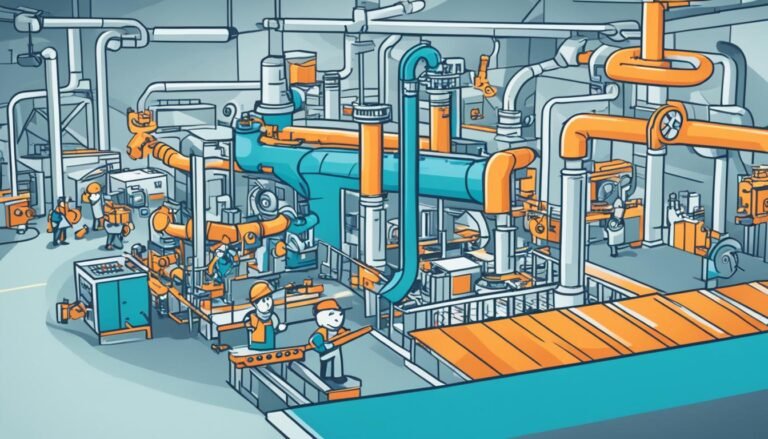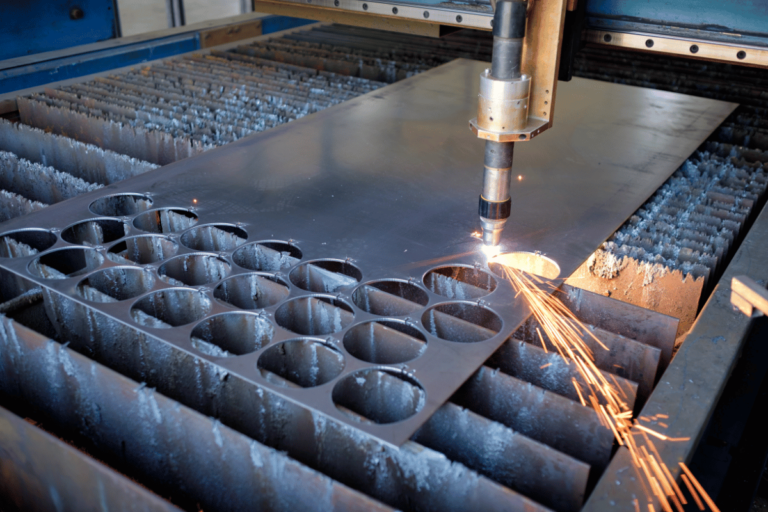Material Handling Services for Your Business: 6 Key Facts to Know
In today’s fast-paced business environment, efficient material handling is crucial for operational success. Whether you’re in manufacturing, warehousing, or distribution, the way you manage your materials can significantly impact productivity and cost-effectiveness.
Understanding the ins and outs of material handling services can streamline processes, reduce waste, and enhance safety in the workplace. From advanced technologies that automate tasks to best practices that promote employee safety, these services offer a multitude of benefits tailored to your business needs.
In this blog post, we’ll explore six key facts about material handling services that every business owner should know. Without further ado, let’s get started.
Material Handling: What It Entails and Why It Matters
Material handling encompasses a range of activities related to the movement, protection, storage, and control of materials throughout the manufacturing and distribution processes. This includes everything from the transportation of raw materials to the storage of finished products. Understanding the significance of efficient material handling is essential for businesses looking to minimize costs and improve productivity.
It directly affects the flow of materials, impacts lead times, and can enhance inventory management. Effective material handling can reduce damage to goods, improve workplace safety, and streamline operations. By investing in the right systems and practices, businesses can ensure they are equipped to handle materials efficiently and effectively.
How Effective Material Handling Reduces Operational Costs
Investing in efficient material handling services can lead to substantial cost savings for your business. By optimizing workflows and reducing the time spent on manual handling, companies can improve productivity and decrease labor costs. Effective inventory management also minimizes waste and storage costs, ensuring that materials are used efficiently.
Furthermore, streamlined material handling processes can reduce damage to goods, cutting down on replacement costs. For instance, implementing solutions such as fabrication and pallet racking systems can enhance storage efficiency and accessibility, ultimately saving time and money. By focusing on cost-efficient material handling strategies, businesses can improve their bottom line while maintaining quality and service levels.
The Role of Technology in Modern Material Handling Services
In the digital age, technology plays a vital role in transforming material handling services. From automated guided vehicles (AGVs) to sophisticated warehouse management systems (WMS), technology helps businesses optimize their material handling processes. Automation reduces manual labor, minimizes human error, and increases efficiency, allowing staff to focus on higher-value tasks. Advanced technologies such as RFID and barcode scanning also improve inventory accuracy and tracking.
As businesses grow and evolve, leveraging technology becomes increasingly important. Integrating smart solutions into your material handling strategy can lead to better decision-making and enhanced operational efficiency, ultimately contributing to a more competitive edge in the marketplace.
How Material Handling Services Promote Workplace Safety
Workplace safety is a top priority for any business, and effective material handling services can significantly enhance safety measures. By implementing proper handling procedures, companies can minimize the risk of injuries related to lifting, carrying, and transporting materials. Training employees on safe handling practices is crucial, as is providing the right equipment, such as forklifts and pallet jacks.
Establishing clear pathways and protocols for material movement can also help prevent accidents. Regular safety audits and maintenance of equipment also play essential roles in creating a safe working environment. Ultimately, prioritizing safety in your material handling processes not only protects employees but also reduces liability for the business.
Tailoring Material Handling Solutions to Your Specific Business Needs
Every business has unique material handling requirements based on its size, industry, and product types. Customizing material handling solutions ensures that they align with your specific operational needs and challenges. This may involve selecting the right equipment, such as conveyors or automated systems, and designing workflows that optimize efficiency. Consulting with material handling experts can help identify the best strategies and technologies for your operation.
It’s essential to assess your existing processes regularly to adapt to changing demands and trends. Tailored material handling solutions not only enhance efficiency but also provide a scalable approach that grows alongside your business.
The Importance of Employee Training in Material Handling Services
Employee training is a critical aspect of successful material handling services. Well-trained staff can effectively utilize equipment and follow safety protocols, significantly reducing the risk of accidents and enhancing overall efficiency. Training programs should cover various aspects, including equipment operation, safety measures, and proper handling techniques.
Regular refresher courses and hands-on training can ensure employees stay updated with best practices and technological advancements. Investing in employee training not only fosters a culture of safety but also improves morale and productivity. A knowledgeable workforce is an invaluable asset, and ongoing training demonstrates a commitment to employee welfare and operational excellence in material handling.
Understanding and implementing effective material handling services is essential for any business aiming to enhance productivity, reduce costs, and ensure workplace safety. From leveraging advanced technologies to tailoring solutions that meet specific operational needs, each aspect plays a vital role in optimizing processes. Moreover, prioritizing employee training fosters a safe and efficient working environment.
By recognizing the significance of these key facts, businesses can make informed decisions that lead to improved performance and growth. Embracing innovative material handling practices not only benefits the bottom line but also positions companies for long-term success in an ever-evolving market.







